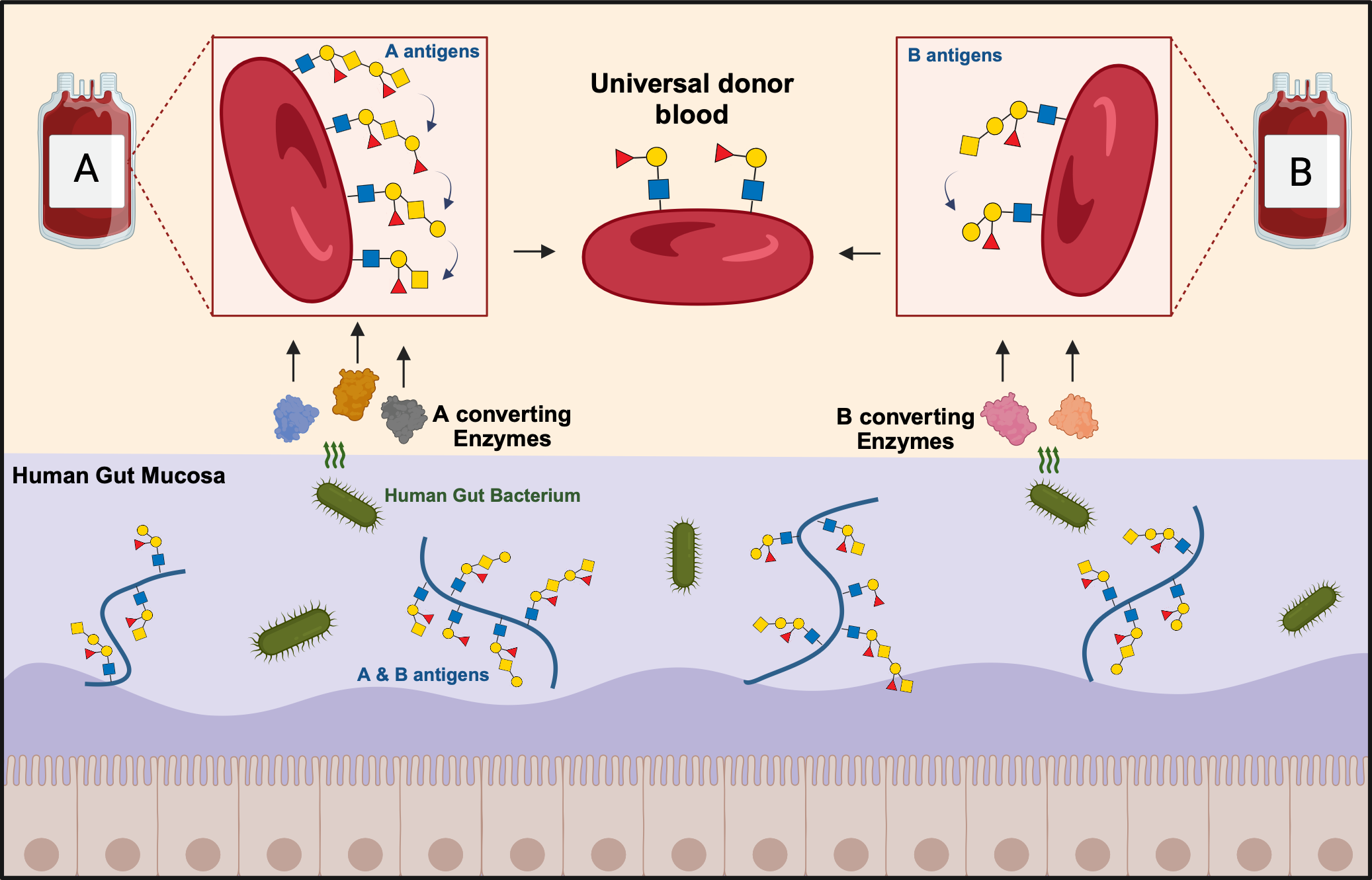Blood transfusions are lifesaving. Every donation of blood will help someone, but because of blood types not all blood can help everyone. Universal donor types are sought-after, but the rest of the donations need to go to specific receivers. At least, for now. Thanks to a new discovery, in the near future all blood might become universal.
There are 45 known blood group systems and they depend on the presence of 362 antigens on red blood cells. The ABO group and the rhesus (Rh) antigen are the most important. People might be A, AB, B, or O and have a positive or negative Rh type. Researchers have discovered enzymes that can remove the specific sugars that make up the A and B antigens. In particular, the work shows that B blood can be made universal.
“For the first time, the new enzyme cocktails not only remove the well-described A and B antigens, but also extended variants previously not recognized as problematic for transfusion safety. We are close to being able to produce universal blood from group B donors, while there is still work to be done to convert the more complex group A blood. Our focus is now to investigate in detail if there are additional obstacles and how we can improve our enzymes to reach the ultimate goal of universal blood production,” senior author Professor Maher Abou Hachem, from the Technical University Of Denmark, said in a statement.
The enzymes come from a bacterium that lives in our gut. It is called Akkermansia muciniphila and it feeds by breaking down the mucus of the intestine using specific enzymes. As it turns out, the complex sugars in the intestinal mucosa resemble those found in the blood. For this reason, researchers believed that these bacteria could be used to make universal blood.
“What is special about the mucosa is that bacteria, which are able to live on this material, often have tailor-made enzymes to break down mucosal sugar structures, which include blood group ABO antigens. This hypothesis turned out to be correct,” added Abou Hachem.
How the process works.
Image credit: Mathias Jensen, postdoc at DTU
From the bacteria, the team extracted 24 enzymes that they used to process hundreds of blood samples. With colleagues at Lund University, they have applied for a patent on the current treatment and are working on a new joint process over the next 3.5 years to test even more enzymes. If successful, this will then move to controlled patient trials before moving into a clinical setting.
“Universal blood will create a more efficient utilization of donor blood, and also avoid giving ABO-mismatched transfusions by mistake, which can otherwise lead to potentially fatal consequences in the recipient. When we can create ABO-universal donor blood, we will simplify the logistics of transporting and administering safe blood products, while at the same time minimizing blood waste,” added Professor Martin L. Olsson, the leader of the study at Lund University.
The study is published in the journal Nature Microbiology.
Source Link: Universal Donor Blood Is A Step Closer Thanks To Enzyme Discovery
